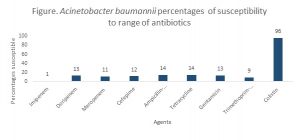18 – 24 November 2019
Every year in November, World Antibiotic Awareness Week (WAAW) is commemorated globally to raise awareness of Antibiotic Resistance and promote behavioural change and to encourage best practices among the general public, health workers and policy makers.
Following an increase in Antibiotic Resistance globally, the World Health Organization (WHO) recognises Antibiotic Resistance as a global health issue and it foresees a massive impact on mortality. The rise of Antibiotic Resistance is leading to untreatable infections which can affect anyone, of any age, in any country. It is the bacteria itself, not the person or the animal, that becomes resistant to antibiotics. Without urgent action, we are heading for a future in which infections and minor injuries could once again kill.
This year’s public messaging focuses on the prevention of infections with basic interventions that are applicable in all settings: safe sex, hand washing and vaccination.
To date, antibiotic resistance accounts for 700 000 deaths each year globally, that figure is estimated to rise to 10 million people per year by 2050, with most deaths occurring in low- and middle- income countries.

The Centre for Healthcare-Associated Infections, Antimicrobial Resistance and Mycoses (CHARM) at the National Institute for Communicable Diseases (NICD) supports WHO’s Global Action Plan by collecting antibiotic susceptibility testing data from both public and private healthcare facilities on resistance rates among specific bacteria.
This data, in turn, informs and guides the South African National Department of Health (NDOH) on action that needs to be taken. The Global Action Plan stipulates five strategic objectives, which are vital for achieving the 2014-2024 NDoH Implementation Plan for AMR strategy framework.
They are set to:
(i) Improve awareness and understanding of Antibiotic Resistance
(ii) Strengthen knowledge through surveillance and research
(iii) Reduce the incidence of infection
(iv) Optimise the use of antimicrobial agents
(v) Develop the economic case for sustainable investment that takes the need of all countries into account and increase investment in new medicines, diagnostic tools, vaccines and other interventions.
The 2019 WAAW campaign message is “ The future of antibiotics depends on all of us.” Everyone must work together to fight the superbugs.


